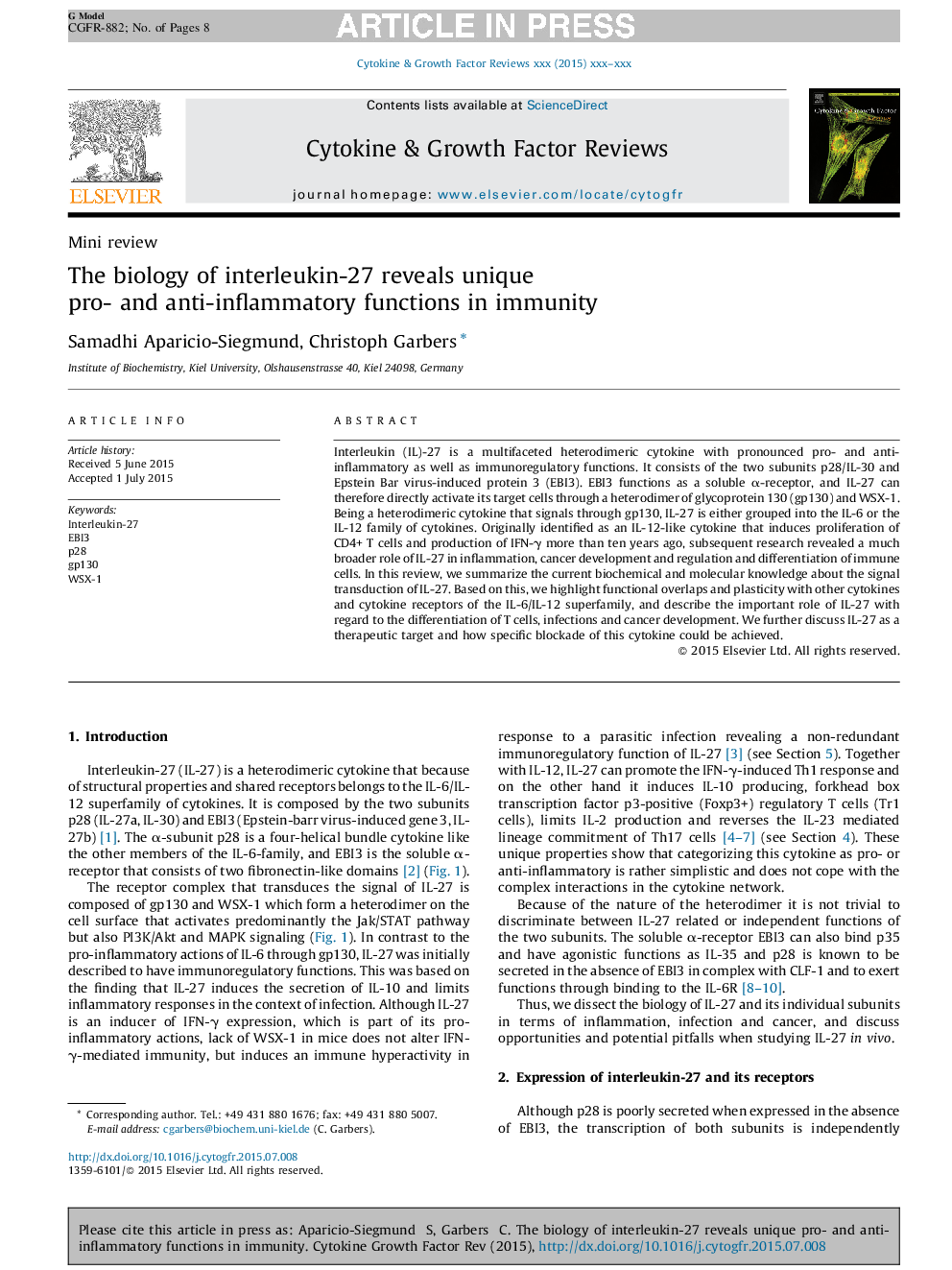| کد مقاله | کد نشریه | سال انتشار | مقاله انگلیسی | نسخه تمام متن |
|---|---|---|---|---|
| 10930075 | 1093377 | 2015 | 8 صفحه PDF | دانلود رایگان |
عنوان انگلیسی مقاله ISI
The biology of interleukin-27 reveals unique pro- and anti-inflammatory functions in immunity
ترجمه فارسی عنوان
زیست شناسی اینترلوکین -27 ویژگی های منفی پروتئین و ضد التهابی را در ایمنی نشان می دهد
دانلود مقاله + سفارش ترجمه
دانلود مقاله ISI انگلیسی
رایگان برای ایرانیان
کلمات کلیدی
موضوعات مرتبط
علوم زیستی و بیوفناوری
بیوشیمی، ژنتیک و زیست شناسی مولکولی
بیولوژی سلول
چکیده انگلیسی
Interleukin (IL)-27 is a multifaceted heterodimeric cytokine with pronounced pro- and anti-inflammatory as well as immunoregulatory functions. It consists of the two subunits p28/IL-30 and Epstein Bar virus-induced protein 3 (EBI3). EBI3 functions as a soluble α-receptor, and IL-27 can therefore directly activate its target cells through a heterodimer of glycoprotein 130 (gp130) and WSX-1. Being a heterodimeric cytokine that signals through gp130, IL-27 is either grouped into the IL-6 or the IL-12 family of cytokines. Originally identified as an IL-12-like cytokine that induces proliferation of CD4+ T cells and production of IFN-γ more than ten years ago, subsequent research revealed a much broader role of IL-27 in inflammation, cancer development and regulation and differentiation of immune cells. In this review, we summarize the current biochemical and molecular knowledge about the signal transduction of IL-27. Based on this, we highlight functional overlaps and plasticity with other cytokines and cytokine receptors of the IL-6/IL-12 superfamily, and describe the important role of IL-27 with regard to the differentiation of T cells, infections and cancer development. We further discuss IL-27 as a therapeutic target and how specific blockade of this cytokine could be achieved.
ناشر
Database: Elsevier - ScienceDirect (ساینس دایرکت)
Journal: Cytokine & Growth Factor Reviews - Volume 26, Issue 5, October 2015, Pages 579-586
Journal: Cytokine & Growth Factor Reviews - Volume 26, Issue 5, October 2015, Pages 579-586
نویسندگان
Samadhi Aparicio-Siegmund, Christoph Garbers,
